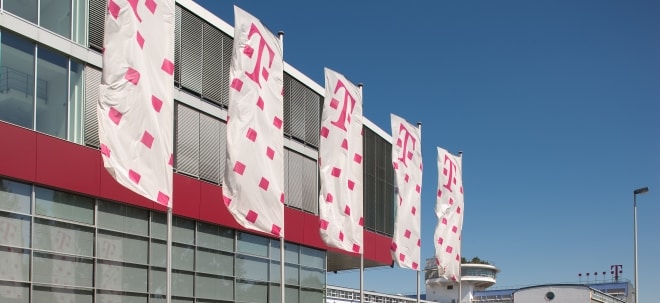Statement by Hon. Peter O"Neill CMG MP to Parliament on the Goodwill Visit to the Autonomous Region of Bougainville
Statement by Hon. Peter O"Neill CMG MP to Parliament on the Goodwill Visit to the Autonomous Region of Bougainville - courtesy of Gorethy KennethTuesday Feb 18, 2014
Mr Speaker, I am pleased to provide to the House a statement on my recent goodwill visit to the Autonomous Region of Bougainville. The purpose of my visit was to reconnect with the people of the autonomous region and show the people of Bougainville that the National Government is deeply committed to righting the wrongs of the past. It was the first visit by a Prime Minister in fifteen years. I have made it my business to travel to the four corners of Papua New Guinea. Bougainville is part of Papua New Guinea they deserved a visit.
Mr Speaker, we are all familiar with the details of the Bougainville conflict. But what matters now is the long road to peace and reconciliation and the restoration of normalcy on the Island.
Mr Speaker, in August 2001, the Peace Agreement was signed at Arawa between the National Government and Bougainville government. That agreement was then given legal affect in 2002, through the Organic Law on Peace -Building in Bougainville-Autonomous Bougainville Government and Bougainville Referendum. The National Government also amended its Constitution and paved the way for Bougainville to pass its own Constitution in 2004.
Mr Speaker, the first election was held in Bougainville in 2005. The people of Bougainville elected their own representatives and the Autonomous Government of Bougainville was formed. Under the Constitution, we recognise only the Autonomous Bougainville Government. Other groups may be formed and give themselves all manner of names and titles. But the legal and rightful government is the Autonomous Bougainville Government.
Mr Speaker, the Autonomous Bougainville Government is not like other Provincial Governments. The arrangements for Bougainville came from very tragic and unfortunate events and gave rise to a unique solution.
Mr Speaker, the arrangements provide for the transfer of powers and function to the Autonomous Bougainville Government. I am pleased to say that a lot of hard work has been done. Legislation to create the Bougainville public service has been approved by the Bougainville Executive Council and the Bougainville Assembly will consider it shortly. With the establishment of a Bougainville public service, the transfer of powers and functions from the National Government can be completed.
Mr Speaker, I am also aware that the Autonomous Bougainville Government has some acute capacity problems. Whilst all Provinces in PNG face the problem of a poorly trained and aging workforce, it is even worse in Bougainville. The conflict saw many young people denied an education and forced to flee their homes. I encourage young enthusiastic men and women to take advantage of the vocational training opportunities that the governments and donors are providing.
Mr Speaker, the conflict resulted in a complete breakdown in the delivery of basic services. After years of neglect roads, health centres and schools have deteriorated to an unacceptable level. We need to rebuild these institutions. Due to these special needs the Autonomous Bougainville Government has very different funding arrangements to Provincial Governments. The funding arrangements may be inadequate and this needs to be addressed.
When I was the Treasurer I identified the depth of this problem and a special intervention fund was established. It was agreed that the Autonomous Bougainville Government would receive K500 million over five years. From 2011 to 2016 the National Government would appropriate K100 million per year to the Autonomous Bougainville Government for major impact projects.
Mr Speaker, these extra funds would rebuild essential infrastructure and allow for the delivery of basic services. Unfortunately, there was a disagreement over how those funds would be allocated. However, I think we are all clear now on the purpose and use of those funds.
Mr Speaker, I am pleased to inform the House that the priority projects for the 2014 appropriation are:
· Sealing the Kokopau to Buin road;
· Re opening Aropa airport;
· Rehabilitating the Buka Island ring road;
· Restoration of the water and sewerage system for Arawa and Buka;
· Restoration of the Kieta wharf;
· Rehabilitation of bridges on the South West Road; and
· Restoration of radio Bougainville.
These projects have been scoped and are now ready for implementation. This will make a huge change to the lives of the people pf Bougainville.
Mr Speaker, the purpose of my visit was to show the people of Bougainville that the National Government stands ready to help. I want all Bouganvillians to be able to send their children to school, to get their crops to market and if they get sick to be able to see a health worker and receive proper treatment.
Mr Speaker, over the three days I spent in Bougainville I was privileged to be able to visit Buka, Buin, Siwai, Panguna and Arawa. In the true Melanesian way, peace and reconciliation ceremonies were held between myself (as representative of Papua New Guinea) and the local leaders. These ceremonies were warmly received by the communities. In particular, I was deeply moved at the ceremony in Panguna with the family of the late Francis Ona and other leaders from the mine area.
Mr Speaker, I would like to thank the people of Bougainville for showing such hospitality. Thousands of people travelled great distances to welcome me to their homes. It was greatly appreciated.
Mr Speaker, throughout my visit I assured the people in Bougainville the National Government is committed to the peace process and ensuring that life is returned to normal for the people of Bougainville.
Mr Speaker, I know that the mine is a very contentious issue and has caused a great deal of heart ache for many people. In my view, this is a matter for the people of Bougainville. Bouganvillians must decide their own fate and the future of the mine. It is not for me to interfere.
Mr Speaker, one of the most important parts of the peace agreement is the referendum on the future political status of Bougainville. Bouganvillians will make a decision about their own future. According to the peace agreement the referendum can occur any time from 2015 until the year 2020.
Mr Speaker, my immediate priority is to rebuild the infrastructure of Bougainville so that when we hold the referendum Bouganvillians will be able to make a meaningful choice. My government is working hard to fully implement the peace agreement. We may have gotten off to a slow start but we are now moving ahead.
Mr Speaker, when selecting the date for the referendum consideration must be given to the following:
1. Whether weapons have been disposed of in accordance with the agreement; and
2. whether the Bougainville Government is being conducted in accordance with internationally accepted standards of good governance.
Whether the Autonomous Bougainville Government has met internationally accepted standards will be determined by the Joint Supervisory Body after considering the findings of independent reviews of the arrangements.
Mr Speaker, every five years the National Government and Autonomous Bougainville Government are required to commission an independent review of the implementation of the peace agreement. Last year the National Government and the Autonomous Bougainville Government commissioned that review. The review is now complete. The review found that there have been significant failings on both sides. We have not done enough to implement the agreement.
Mr Speaker, the Autonomous Bougainville Government has a lot of hard work ahead of itself. However, with the immanent passage of the Bouganvillian Public Service Act and with continual support from National Departments, the Bouganvillian public service is slowly being re built.
Mr Speaker, during my visit to Bougainville it was very obvious that the ordinary Bouganvillian has a very poor understanding of the peace agreement. This concerns me. I am pleased to say that the Autonomous Bougainville Government and the National Government has committed to a public education campaign. This is aimed at the public, public servants and all members of the National and Bougainville Assembly.
Mr Speaker, this government isalso taking its obligations seriously. I will be recommending that a parliamentary committee is established to provide political oversight and leadership in relation to the Bougainville referendum.
Mr Speaker, I think we can all agree that what occurred in Bougainville was a terrible tragedy. But it is now time to rebuild. My visit to Bougainville was historic and served as an important marker in the peace and reconciliation process. My visit was an assurance to the people of Bougainville that the National Government is firmly committed to fully implementing the peace agreement and returning normalcy to their lives.
Yesterday, Civil Aviation Minister and Public Enterprises Minister Ben Micah were in Bougainville to reopen the Post Office in Arawa after 25 years, and also open an office for Air Niugini there.
In two months or so we will re-open the Aropa airport so Air Niugini can fly directly there.
PNG Power, MVIL and other statutory bodies are resuming the provision of their services there.
I want to ensure that the people of Bougainville are once again able to enjoy essential services.
|


 Thread abonnieren
Thread abonnieren

